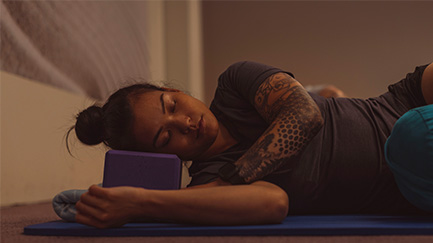When it comes to anxiety, many parents find it hard to tell if their child’s behaviour is typical or if it is something to worry about. Keep reading to find out a little bit more about anxiety in children.
What is normal anxiety in children?
Most kids experience some level of anxiety. It is quite a normal part of life and growing up. It can change based on age or development. For example, children not wanting to separate from parents or being scared of the dark for a 2 year old is normal. Anxiety can be normal when children are faced with a new or scary situation.
When is it a problem?
Anxiety can need more assistance or extra support when it doesn’t go away or change as the child develops, is of a high level (or out of proportion), stops children participating in activities or interferes with things that other children their age can do.
What are the common types of anxiety in children?
There are several types of anxiety. Some children can have more than one type, other children only have one.
- Social Anxiety – this is worrying about what other people think of you and avoiding situations where you interact with others or become the focus for attention
- Generalised anxiety – this is when children often worry about many different areas of life – from school, friends and money to world events.
- Separation anxiety – this is when children worry about not being with their parents or carers. This can be age appropriate at times but separation anxiety will last the whole time they are separate from their adult (even if this is a day).
- Phobias– this is where children are worried about one thing and will do anything to avoid it. This could be dogs, spiders, needles or vomiting.
What are some things to look out for as signs of anxiety in children?
Children might:
- Seek reassurance often
- Avoid situations when they feel worried – they might do this by making excuses, getting upset, refuse to do things or saying they don’t want to do it
- Talk about the things they feel worried about a lot or ask questions about it
- Get upset or angry easily - criying over small things
- Have headache or stomach aches often
- Have trouble sleeping, or talk about their worries very close to bedtime
- Be clingy towards parents
- Withdraw
- Ask parents to do things for them so they don’t have to face their fears
- Worry about meeting new people, or being in a situation where they might make a mistake
- Want things to be perfect and get upset if they make mistakes
- Worry about events at school and repeatedly check with you that they have understood information, e.g seeking reassurance that an excursion is happening
Some tips that might help you deal with anxiety:
- Try not to say “Don’t worry” “It’s okay.” “It’s nothing to worry about”. Children normally can’t help it that they feel anxious and can’t turn it off on command
- Talk to children about their feelings – acknowledge that they are anxious.
- Talk to them about why it is not necessary to worry about something. For example, if a child has a fear of all dogs, let them know that most dogs are friendly.
- Encourage them to do things they are anxious about slowly, gently and with support
- Praise or reward your child for doing something that they are worried about
- Make a ‘Worry time’ – a time that they can talk about their worries (around dinner time is best, avoid bedtime!).
If you would like to know more about assisting your child manage their anxiety, contact us to book an appointment with a psychologists. Telehealth and face to face appointments are available to all eligible veterans and family members with a valid referral.
Written by Mates4Mates Psychologist, Laura Stewart





